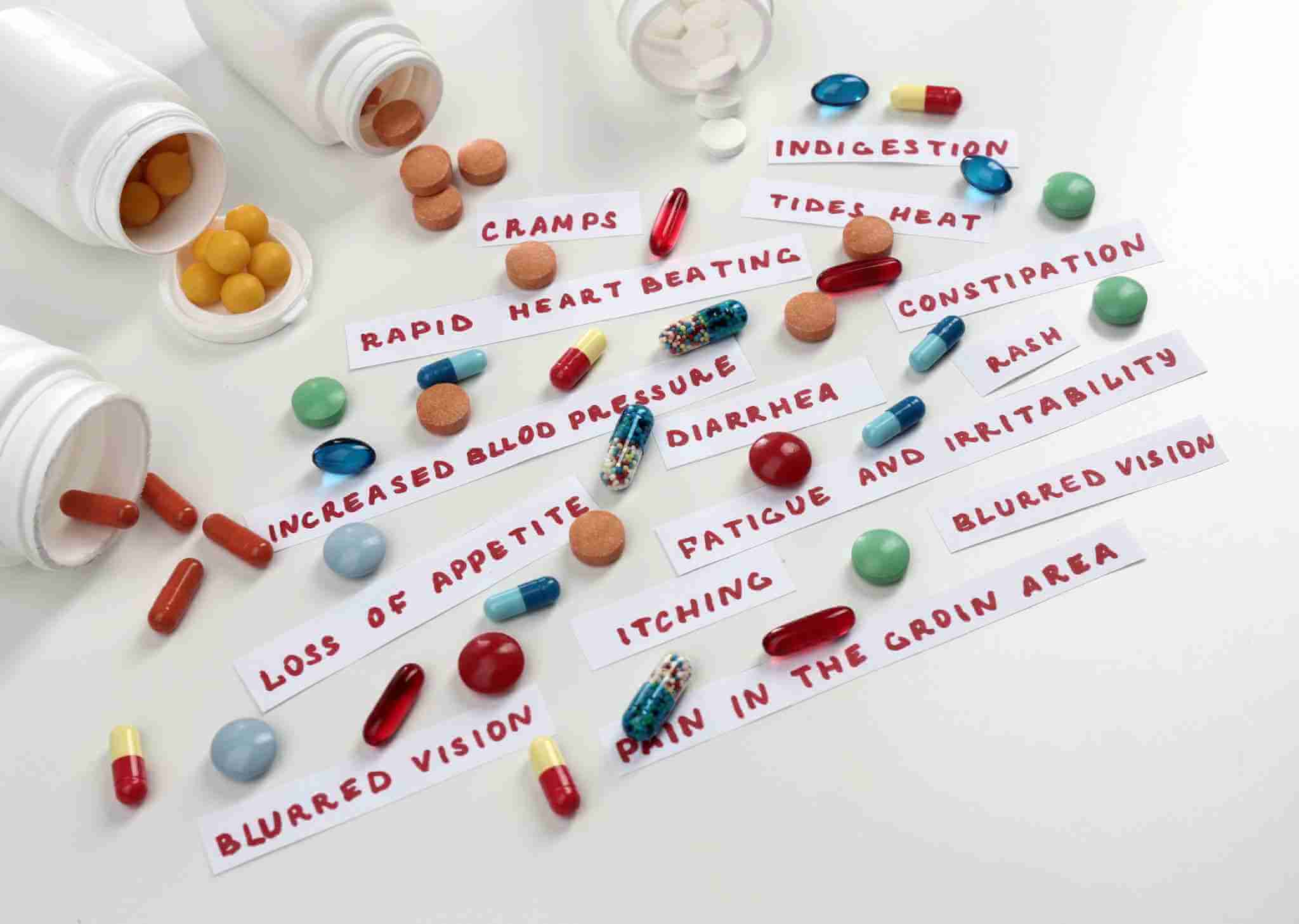Highlights
- Fluticasone is a corticosteroid that doctors often prescribe for asthma management.
- Some doctors may prescribe fluticasone for off-label uses like the treatment of croup or conditions of the vocal cords.
- Fluticasone fights inflammation and suppresses overactive immune reactions
Doctors prescribe fluticasone inhalation to asthma patients to prevent asthma attacks. Different brands of fluticasone suit different age groups. If your doctor prescribes fluticasone, ensure you get the prescribed brand and nothing else.
What is Fluticasone and What Is It Used For?
The drug is a corticosteroid that reduces inflammation in the body. In addition to its anti-inflammatory effects, fluticasone is also an immunosuppressant — it treats conditions resulting from an overactive immune system. Doctors often prescribe specific brands of fluticasone because not all are equivalent.
Brand Names
Fluticasone is sold in several forms and under many different brand names. Here’s a rundown.
Inhaled Fluticasone
Drugs in this category are corticosteroids in the form of inhalers. These medications are used primarily as maintenance treatment for asthma.
Brand names include:
- Flovent
- Flovent HFA
- Arnuity Ellipta
- Flovent Diskus
- ArmonAir Digihaler
Nasal Fluticasone
Medications in this category are inhaled steroids, used to treat allergic rhinitis, nasal polyps, and rhinitis.
Brand names include:
- Flonase
- Flonase Allergy Relief
- Xhance
- Flonase Sensimist
- Veramyst
Topical Fluticasone
Topical fluticasone is a topical steroid that’s used on the skin.
Brand names include:
- Cutivate
- Beser
These medications are used to control inflammation and itching from skin conditions like psoriasis and eczema.
Fluticasone is also available combined with other medications. Most are used to treat allergic rhinitis, asthma, and chronic obstructive pulmonary disease (COPD).
Some of the most common brand names for these combination medications are:
- Dymista
- Advair Diskus
- Advair HFA
- Breo Ellipta
- Trelegy Ellipta
History and FDA Approval
Pharmaceutical company GlaxoSmithKline invented fluticasone and patented it as fluticasone propionate in 1980. Fluticasone propionate is commonly referred to as simply fluticasone.
The FDA approved the drug in the U.S. in 1994. Initially, doctors used it to treat asthma exclusively, under the brand name Flovent.
When combined with other substances like salmeterol, fluticasone is well suited for asthma management.
As fluticasone’s patents expired, it became available in more and more generic formulations. Its price plummeted, and it became a cornerstone of medication-based asthma management. It continues to improve the quality of life of millions of asthma sufferers worldwide.
Off-Label Uses
Due to its wide availability, doctors began prescribing fluticasone off-label to treat other conditions. These conditions include:
- Chronic sinusitis
- Croup
- Vocal cord inflammation
- Eosinophilic esophagitis
- Lichen sclerosus and certain skin lesions (creams and ointments)
The term “off label” means that a medication is not approved for a particular use by the FDA. Only qualified healthcare professionals can prescribe fluticasone for off-label use.
How Does Fluticasone Work?

Once administered, fluticasone enters the cells of the mucous membrane lining the airways. Corticosteroids like fluticasone affect the genes responsible for inflammatory responses, suppressing their activity.
In addition to reducing inflammation, fluticasone also reduces the response of the immune system in the cells it enters. This double action allows it to limit asthmatic responses and reduce congestion and mucus production.
Fluticasone is not suitable for immediate relief. It’s a long-term solution for asthma management. For quick relief during an asthma attack, doctors prescribe short-acting bronchodilators like albuterol.
What Formulas Are Available for Fluticasone?
Fluticasone is frequently used as an inhaler. Fluticasone propionate is its most popular formula in this form, and it’s also available in combination with salmeterol. BidRx carries fluticasone salmeterol inhalers in several dose strengths. The only difference between these products is how much fluticasone and salmeterol they release in one puff.
Fluticasone propionate is also available as a 0.05% lotion, a 0.05% cream, and an 0.005% ointment.
Fluticasone is also an active ingredient in certain over-the-counter allergy products, including nasal sprays and eye drops. These over-the-counter options are clearly labeled with fluticasone as the active ingredient. However, it’s important to note that the concentration of fluticasone in these OTC products is typically lower than what you would find in prescription fluticasone products.
Talk to your doctor about whether an OTC or prescription fluticasone product would be the better choice for you.
Fluticasone Dosage and Administration
Optimal fluticasone dosage depends on the patient’s age, the severity of the condition, and previous treatments. Note that the dosage regimens below are general guidelines; only a healthcare provider can determine the appropriate dosage for an individual.
Asthma Management in Adults
If you are an adult and receive fluticasone for asthma management as an inhaler, you may start with 88 microgram doses twice a day. Daily doses exceeding 880 micrograms may not be safe.
Fluticasone Propionate Inhalation Powder
Patients who receive fluticasone propionate inhalation powder may start with two daily doses of 100 micrograms each.
Fluticasone Furoate and the Armonair Brand of Fluticasone Propionate
Inhalation powder doses also depend on the brand. Patients taking the Armonair brand may start with two daily doses as low as 55 micrograms. Those taking Arnuity Ellipta may also start with 100 microgram doses.
Doctors Determine Dosage Based on Individual Needs and Other Factors
Doctors may prescribe higher initial doses to patients whose asthma is more severe and out of control and those who previously took other medications.
Trust your doctor to set your optimal dose and always stick to it. Never second-guess the recommendations of a healthcare professional. However, it’s important to be aware of the potential side effects of fluticasone and to report any concerns to your doctor.
Asthma Management in Children
Pay attention to the brand of fluticasone your doctor prescribes for your child. Different fluticasone brands are not equivalent.
Children 4-11
Children between four and eleven may receive two doses of 50 micrograms of fluticasone propionate daily. Their maximum dose is usually 100 micrograms twice daily.
The same age group can take 88 micrograms of aerosol inhalation twice daily.
Children 12 and Older
Children 12 and older usually take 88 micrograms of fluticasone propionate aerosol twice daily. The maximum dose is generally 880 micrograms twice daily.
Children in this age group who take inhalation powder typically start with 100 micrograms twice daily. The maximum allowed dose is generally 1,000 micrograms twice daily.
Armonair and Arnuity Ellipta (Fluticasone Furoate)
The Armonair brand of inhalation powder dictates initial doses of only 55 micrograms twice daily for new patients.
Arnuity Ellipta patients will usually take two 100 microgram doses daily.
Long-Term Effects May Affect Dosage
Rarely, long-term exposure to corticosteroids may affect liver function. Doctors will monitor liver function parameters and adjust your fluticasone dosage accordingly.
If you’re a long-term fluticasone user, do not stop taking the drug abruptly. Talk to your doctor. If your doctor wants to discontinue the use of fluticasone, they will set a schedule to slowly wean you off the medication.
How Should I Take Fluticasone?

As with every medication, take fluticasone exactly as your doctor directs. Never exceed the dosage specified on the prescription label.
Here’s what else you should know about this medication.
- Fluticasone is not a rescue medication. The drug is slow-acting and cannot alleviate bronchospasm attacks. If you think fluticasone doesn’t help you manage your asthma for whatever reason, let your provider know.
- Learn how your inhaler device works. Some devices spray liquid medication into your lungs in aerosol form. Others spray powder, contained in blisters within the device.
- Do not stop using the medication abruptly. If you feel you need to stop taking it, talk to your doctor.
- Keep inhalers out of the reach of children. Fluticasone can be dangerous in high doses.
- Mind your dental hygiene. Fluticasone can cause cavities.
- Protect your mouth from yeast infection. Rinse your mouth with water after taking a fluticasone medication, and don’t swallow the rinse water.
- Safeguard your vision. Have your vision checked regularly as part of your treatment monitoring.
- Know that your dosage can be adjusted. If you experience extreme physical or mental stress or have an asthma attack, you may have to call your doctor to adjust your fluticasone dosage.
- Monitor your progress. Monitor your progress at home and call your doctor if you notice no improvement after two weeks of treatment.
- Use a measuring device. Depending on the severity of your condition, your provider may ask you to use a device called a peak flow meter. Contact your doctor if you get readings below normal.
- Store your fluticasone properly. Store your fluticasone in a cool, dry place away from light sources. Store the aerosol canister with the mouthpiece down.
What Are The Potential Side Effects of Fluticasone?
Fluticasone may cause common and less common but more severe side effects. The common side effects usually resolve without medical intervention. Many are symptoms resulting from the patient’s body adapting to the medication.
Your provider can tell you how to prevent these frequent and mild side effects.
Some of the most common and frequent side effects of fluticasone are:
- Stuffy nose
- Accumulation of yellowish-green mucus in the nose
- Voice changes
- General lethargy
- Headaches
- Cough
Some of the common but less-frequent fluticasone side effects are:
- Nosebleeds
- Severe headache
- Sneezing and itching eyes
- Stomach pain
- Bloody mucus in the nose
- Muscle pains
- White patches in the throat and mouth (thrush). This may require medical treatment.
Some of the rare side effects of fluticasone are:
- Weight gain
- Agitation or aggression
- Feeling restless
- Bruising
Other extremely rare side effects are loss of height, weight loss, loss of voice, sweating, fruity breath odor, and dry skin.
The severe side effects of the drug require medical attention, and some can be life-threatening.
Less-frequent but severe side effects include:
- Painful urination
- Diarrhea
- Vomiting
- Trouble swallowing
- Painful bones
- Fever
- Aching ears
- Discharge from the eyes
- Creamy white vaginal discharge
- Sore throat
Rare but severe side effects of this medication include:
- High blood pressure
- Male impotence
- Blindness or vision problems
- Heart problems
- Bloating of the face, neck, or trunk
- Loss of muscular mass
- Swelling of the eyelids, face, or mouth
- Trouble breathing
- Hives
- Lack of menstrual periods
- Facial hair growth in women
- Slower growth in children
- Dizziness
- Tightness in the chest
If you experience severe side effects, seek medical attention, even if you don’t feel your life is in immediate danger. Let medical professionals assess the severity of your situation.
Symptoms of allergic reactions can be life-threatening and require immediate medical intervention. Allergic symptoms include swelling of the face, lips, throat, and tongue, hives, and difficulty breathing.
What Should I Avoid When Taking Fluticasone?

Stay away from people infected with measles or chickenpox.
Fluticasone is a steroid medication and immune system modulator that can compromise your immune system. This means that you become more vulnerable to infections.
If you take fluticasone, avoid situations with a high risk of infection. Stay away from sick people and anyone with an infection. Pay special attention to chickenpox and measles and avoid anyone who is likely to have been exposed to these diseases. These infections can be fatal to steroid medication users.
What Should I Do if I Miss a Dose of Fluticasone?
If you miss a dose of fluticasone, skip it. Don’t try to make up for a missed dose by taking two.
Never take more than one dose of Arnuity Ellipta per day.
What Should I Do If I Overdose on Fluticasone?
While overdose on this medication is rare, you should know the symptoms. You may have overdosed on the drug if you experience:
- Depression
- Loss of appetite
- Darkening skin
- Persistent weakness and tiredness
- Fainting
Overdosing on fluticasone is rarely fatal, but it’s a serious problem nonetheless. Seek immediate medical attention if you experience any of the above symptoms, or call the Poison Help line at 1-800-222-1222.
Be aware that long-term use of the drug can result in peculiar side effects like:
- Thinning of the skin
- Glaucoma
- Cataracts
- Low sex drive
- Increased acne
- Fat redistribution around the face, waist, and neck
- Irregular menstrual cycles
Contraindications
Fluticasone does not suit everyone. Some patients should stay away from the drug, and others should exercise caution. It’s important that you disclose all your past and current medical problems to all your healthcare providers.
Who Should Not Take Fluticasone?
Avoid the medication if you fall into one of these categories:
- Children under 4. Fluticasone is not recommended for children under 4.
- Children between 4 and 5. Children in this age bracket can’t take Arnuity Ellipta.
- Children under 12. ArmonAir may be dangerous for children younger than 12.
- People allergic to milk proteins. People allergic to milk proteins can’t take the powder forms of the drug.
Patients with nasal trauma, septal perforations, surgeries, or ulcers should not use fluticasone. Never use fluticasone to treat an asthma attack that’s in progress.
Who Should Take Fluticasone With Caution?
If you have tuberculosis, ocular herpes, or various parasitic, viral, or fungal infections, take fluticasone with caution. Tell your doctor if you suffer from these problems.
Also, talk to your doctor if you have:
- A weak immune system
- Liver disease
- Glaucoma
- Brittle bones
- Toxoplasmosis
In unusual cases, doctors will decide that the benefits of certain medications outweigh the potential risks. Always speak to your provider before discontinuing a medication on your own.
Are There Any Other Potential Drug Interactions with Fluticasone?

Drug Interactions
According to Drugs.com, a total of 100 drugs and supplements can interact with fluticasone. Of these, 36 are considered major, but interactions with many of the drugs on the list are listed as unknown, so always be sure your providers know if you are taking any medications on this list.
For the complete interactions list, see Fluticasone Interactions Checker.
Fluticasone Benefits Outweigh Risks for Most Patients
Fluticasone is a powerful drug that improves the quality of life of millions of asthma sufferers every day. For these people, its benefits far exceed the trouble its side effects may cause. As a user or potential user, however, you must understand its uses, interactions, and side effects.
Now that you know the essentials about fluticasone, learn how to get it at the most affordable price.
Get the Lowest Price for Fluticasone with BidRx

With BidRx, you can place a bid for the drug of your choice and let pharmacies across the U.S. compete to give you the lowest price.
See all asthma medications, select your formulation, and place your bid. You then choose the best offer and have it delivered to your door or pick it up locally, depending on the offer you select.
Choose BidRx for the lowest price on all your medications.
Please note that this information is intended for general informational purposes only. It is not a substitute for professional medical advice, diagnosis, or treatment. Always seek the advice of your physician or other qualified health provider with any questions you may have regarding a medical condition or medication.
